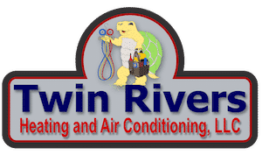Investing in a new HVAC system is a major decision, and understanding your warranty is key to protecting that investment. A well-understood HVAC warranty offers peace of mind, shields you from unexpected repair costs, and ensures your system stays in optimal condition for years to come.
In this guide, we’ll break down the essential components of HVAC warranties, from coverage types to maintenance requirements and exclusions, so you can make informed decisions and avoid costly surprises.
What Is an HVAC Warranty?
An HVAC warranty is a guarantee from the manufacturer or installer to repair or replace components of your HVAC system within a specified time period. These warranties are designed to cover defects in materials or workmanship, helping protect you from early system failure and unplanned expenses.
Types of HVAC Warranties
Warranties can differ significantly in terms of what they cover and for how long. Here are the three most common types:
1. Manufacturer Warranty
This warranty is provided by the HVAC system manufacturer and typically covers defects in system components. Coverage periods often range from 5 to 10 years, though some components may come with extended warranties.
2. Labor Warranty
Offered by the contractor who installs your system, this warranty covers labor costs for repair work during a specific timeframe—usually 1 to 2 years post-installation. Labor warranties vary by contractor, so it’s important to review the terms.
3. Extended Warranty
Extended warranties offer additional protection beyond the standard manufacturer and labor coverage. These may extend the time frame or include additional services and components not covered by the base warranties. Extended coverage can often be purchased through the manufacturer or third-party providers.
Importance of Proper Installation and Maintenance
Improper installation is one of the leading causes of HVAC system issues and can void your warranty. Always hire a licensed, experienced HVAC contractor to ensure your system is installed correctly. In addition, most warranties require routine maintenance to stay valid, which means scheduling professional tune-ups and system inspections at recommended intervals.
Warranty Registration and Documentation
Registering your HVAC system is typically required to activate the warranty. This must usually be done within a limited time after installation, often 60 to 90 days. Failure to register can reduce or limit your warranty coverage. Keep detailed records of installation, service, and maintenance, as these may be necessary when filing a warranty claim.
What Isn’t Covered by Manufacturer Warranties?
Understanding what is not covered is just as important as knowing what is. Common exclusions include:
-
Normal wear and tear
-
Damage from neglect or improper use
-
Unauthorized system modifications
-
Repairs performed by unlicensed individuals
Knowing these exclusions helps ensure that your actions don’t accidentally void your warranty.
Secure Your HVAC Investment with Twin Rivers Heating and Air Conditioning LLC
At Twin Rivers Heating and Air Conditioning LLC, we’re dedicated to helping homeowners get the most out of their HVAC systems. Our experienced team will guide you through your warranty coverage, ensure proper installation, and provide the maintenance services needed to keep your system performing at its best.
Call us today at (336) 612-2635 or complete our online form to schedule a service or consultation in Eden, NC. Trust Twin Rivers Heating and Air Conditioning LLC to protect your HVAC investment and provide peace of mind year-round.

